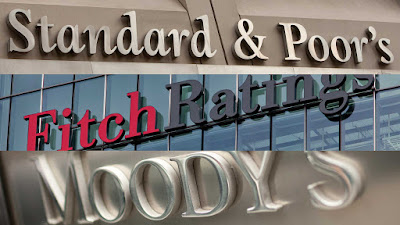The Iconic Macy’s Downgraded to “Junk” Status

Quite often here in Financial Regulation Matters , we have looked at the experience being faced by British retailers against the onslaught of online commerce but, of course, the experience is shared with American ‘bricks-and-mortar’ retailers. In this short post we will review the fortunes of one of America’s most iconic department stores – Macy’s. Macy’s, founded in 1951 by Rowland Hussey Macy, is one of the most iconic American department stores . To provide some context for the marketplace, Bloomingdale’s is another iconic store but it operates under the Macy’s Inc. holding company, which used to be known as the ‘Federated Department Stores’ holding company before it purchased Macy’s in 1994 and re-branded. Macy’s Inc., in the last full financial year, recorded revenues of nearly $25 billion. However, earlier this month the company announced a set of plans to revive what are quickly becoming ailing fortunes. As part of what the company has labelled ‘ Operation Polaris ’, th...




